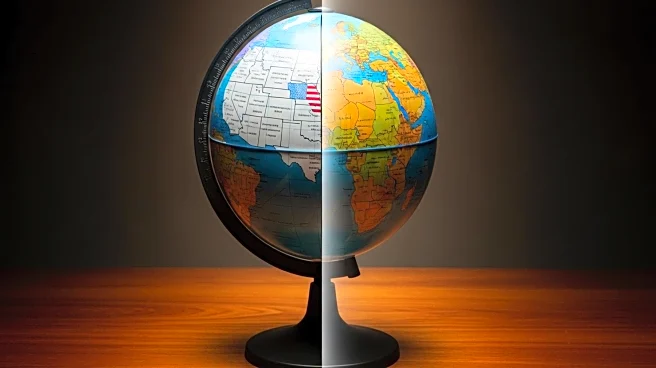What's Happening?
The African Growth and Opportunity Act (AGOA), a U.S. trade program providing duty-free access to the U.S. market for sub-Saharan African countries, has expired. Despite President Trump's expressed support for extending the program, it lapsed due to legislative inaction. AGOA, established 25 years ago, has been credited with creating jobs and fostering economic growth in Africa. The expiration has reinstated old trade duties, affecting exports from countries like Nigeria, South Africa, and Kenya. The lapse raises questions about the U.S.'s commitment to Africa, especially as rival powers like China and Russia seek to expand their influence on the continent.
Why It's Important?
The expiration of AGOA could have significant economic repercussions for African countries, particularly those heavily reliant on exports to the U.S. The reintroduction of tariffs may lead to reduced market access, affecting industries such as apparel and agriculture. This situation could undermine efforts to diversify African economies and may lead to job losses. The lapse also signals a potential shift in U.S.-Africa relations, with implications for geopolitical dynamics as other global powers may seek to fill the void left by the U.S.
What's Next?
Efforts to renew AGOA may continue, but the timing and outcome remain uncertain. U.S. lawmakers will need to prioritize the reauthorization to prevent long-term economic damage. African countries may seek alternative trade partnerships or adjust their export strategies in response to the new tariffs. The situation could also prompt discussions on the future of U.S. trade policy and its alignment with foreign policy objectives.
Beyond the Headlines
The expiration of AGOA highlights broader issues in U.S. trade policy, including the balance between protectionism and international cooperation. It also underscores the importance of timely legislative action in maintaining international agreements. The situation may prompt a reevaluation of how trade programs are managed and the role of executive versus legislative authority in trade policy.










